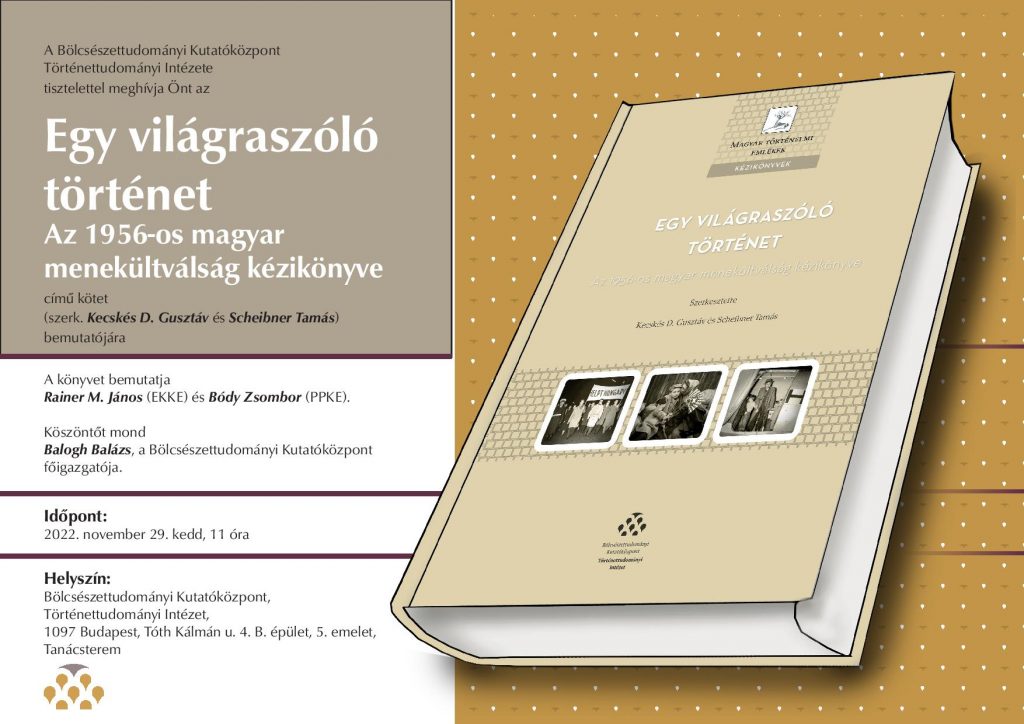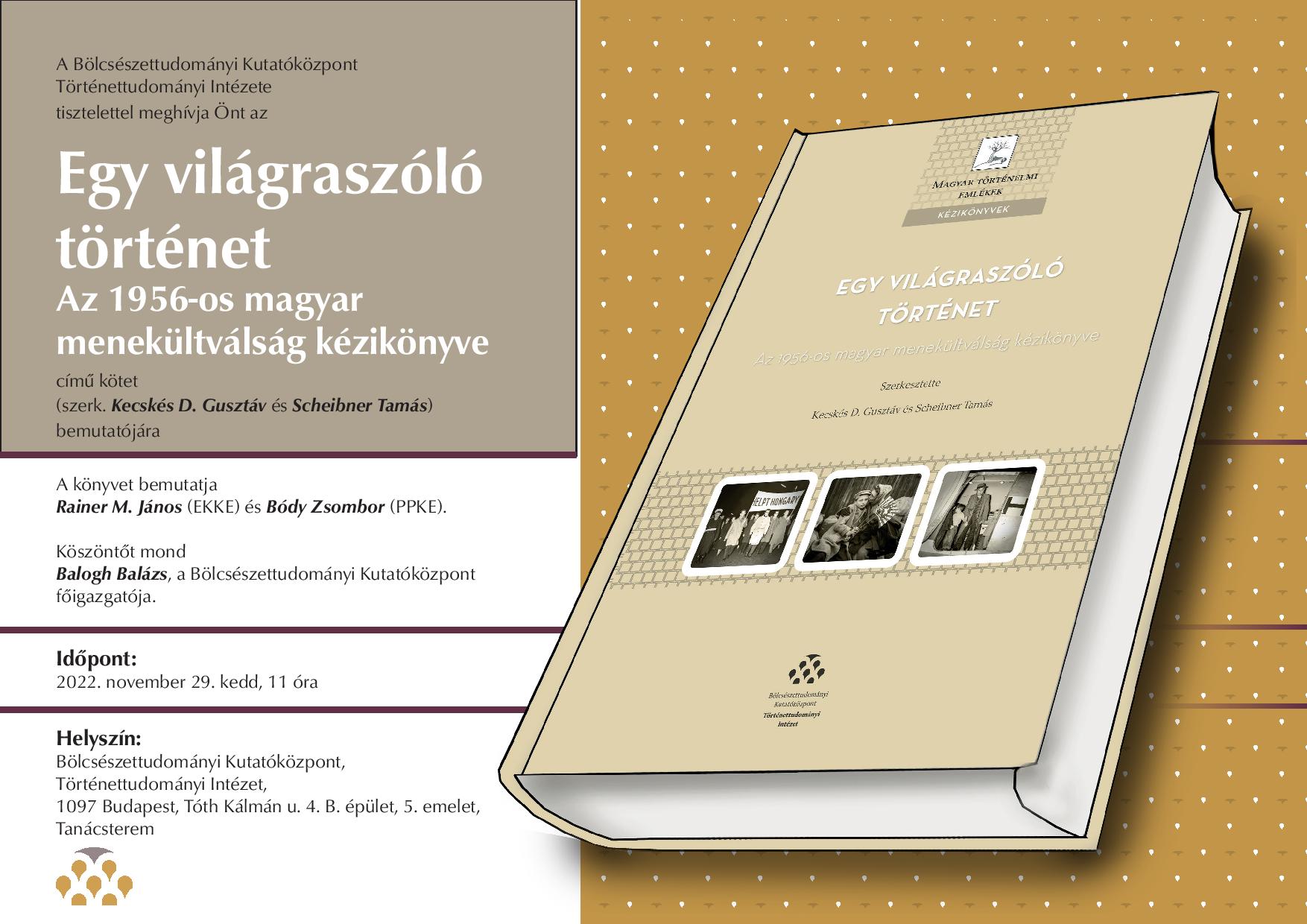My chapter on Canada’s response to the 1956 Hungarian Revolution and the subsequent refugee crisis of 1956-57 has appeared in Hungarian, in a new print handbook on the history of 1956 published by the Institute of History at Hungary’s Research Centre for the Humanities. The Hungarian-language version of the handbook is being launched tomorrow in Budapest. In English, the project is entitled: The Handbook of the 1956 Hungarian Refugees — From Crisis to Impact. The Hungarian title is Egy világraszóló történet. Az 1956-os magyar menekültválság kézikönyve.
More than two dozen countries were profiled, each in a chapter. I was asked to write the chapter on Canada and it now appears on pages 465 to 476 of this extensive handbook. Although I speak and write Hungarian, I wrote the chapter in English and it was professionally translated by the Institute.
In my chapter I argue that the experience with the 1956 refugee crisis led to transformational change in Canada. It propelled the country in the direction of developing a more comprehensive refugee and immigration policy and explicitly set the groundwork for future large waves of asylum-seekers, especially the Vietnamese and the Ugandans. The 1956 refugee crisis also came at a time of nation-building in Canada, where Canadians sought to develop and define their national identity. In the decade that followed, the federal government would embark on a process — incorporating the experience and views of immigrants — that increasingly defined the Canadian nation as bilingual and multicultural, rather than the traditional view that it was bicultural The experience of 1956 played a role in redefining Canada.
I won’t be at the book launch in Budapest tomorrow, but I’m grateful for having worked with the editors of this volume — Gusztáv Kecskés and Tamás Scheibner.


Chris your post reminds me of Grade 2, we were introduced to a new boy at school who came from Hungary – his family escaped and that made him somewhat of a hero to us. That he was a young Jewish boy added to the alure and I can remember him telling us about “Exodus”. We learned a lot from him at the small Grade 2 class at a brand new Catholic School in Vancouver. We had no idea of what he or his family or his people experienced, but he was sort of like a hero because he with his family had escaped.
Thanks for sharing, Eleanor! Yes, Jewish Hungarians made up a large proportion of fifty-sixers.
My grandfather, who arrived in 1957, made Vancouver his first home. He lived there until 1963, before moving to Montreal where he finally reunited with my grandmother and mother who had just then arrived in Canada.
Hello i like to buy a book in hungaryen language if possible an d i like to have contact whit u whit a lot info historical i”m from transilvania ro live in usa 34 years i know lot of history may heelp u to write a new book u can call me or text me more freffer to call im still working full time but always can spare some time
Respect your work and thank u A moldovanyi 904-2262059